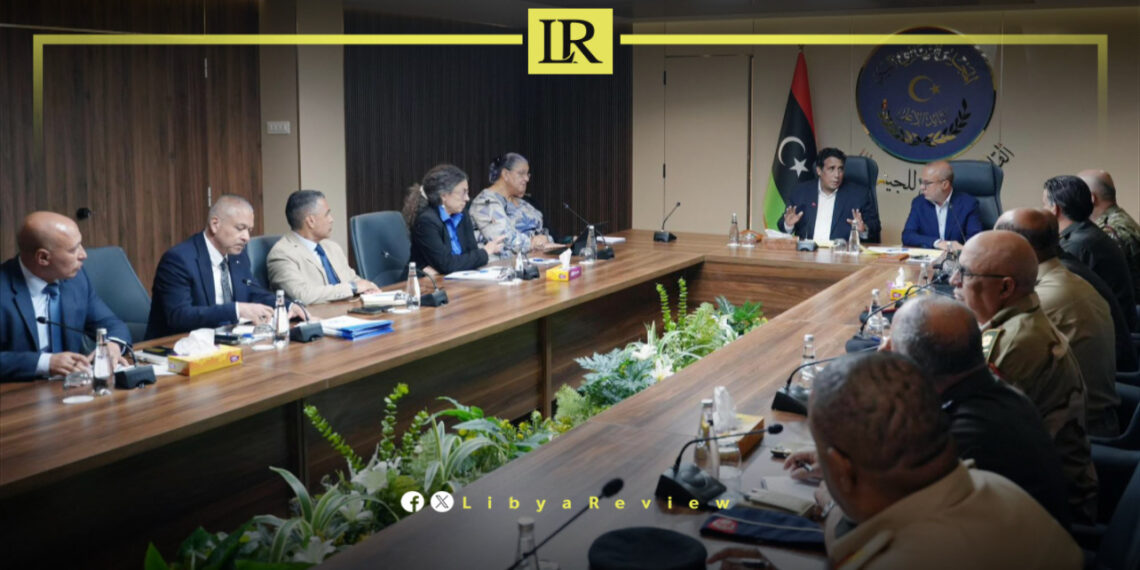On Sunday, Libya’s Presidential Council head, Mohamed Al-Mnifi, held a high-level meeting in Tripoli with the UN Special Representative of the Secretary-General, Hanna Tetteh, and several senior military and security officials from western Libya. The discussions focused on the recent security developments in the capital and the urgent need to maintain calm.
During the meeting, the Presidential Council officially launched a ceasefire stabilization mechanism aimed at addressing the consequences of recent armed clashes and preventing their recurrence. The plan includes coordinated efforts to enhance security arrangements, de-escalate potential flashpoints, and reinforce confidence between rival factions.
Al Mnifi stressed the importance of collaboration between all military and security entities in the capital, urging unified action to safeguard public safety and restore stability.
He reiterated the crucial role of Libya’s military institutions in protecting civilians, enforcing the rule of law, and supporting the broader path toward national political reconciliation.
The council’s initiative seeks to transform short-term ceasefire agreements into a long-term framework for peace, rooted in cooperation, transparency, and operational readiness across the capital’s security infrastructure.
UN envoy Hanna Tetteh welcomed the initiative, voicing the United Nations’ full support for the council’s steps. She emphasized that the international community, including the UN Security Council, considers such efforts essential for Libya’s stability. Tetteh noted that creating durable security in Tripoli is key to Libya’s broader political transition and must be backed by sustained coordination between local actors.
The meeting comes amid renewed calls, both domestically and internationally, for Libyan leaders to avoid further violence, strengthen state institutions, and ensure that recent escalations do not derail progress toward elections and national reconciliation.


